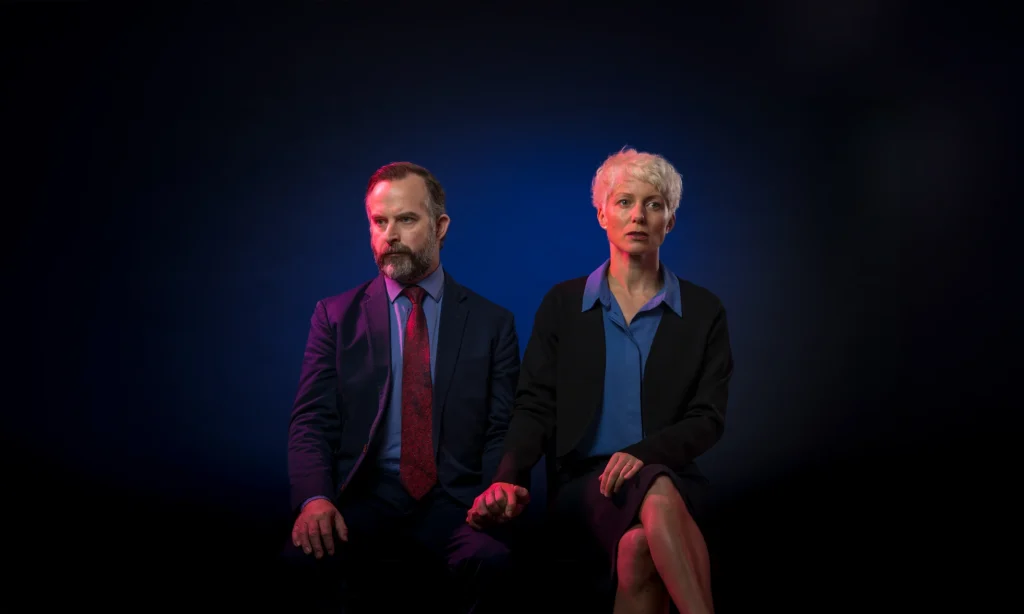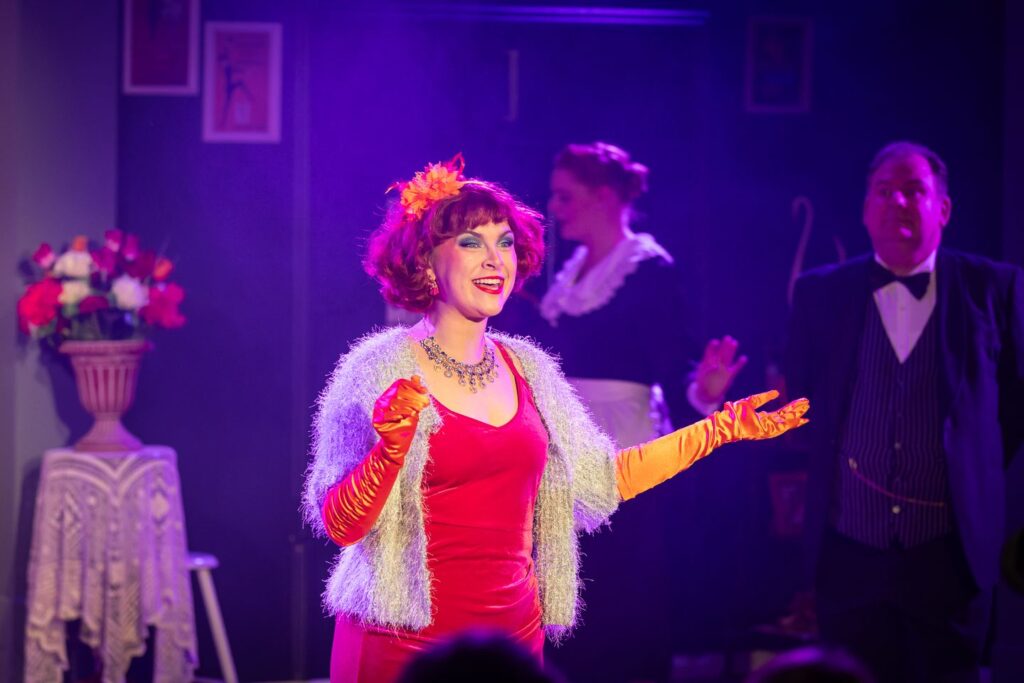
‘The Platypus’ // Theatre Works
‘The Platypus’ was eccentric.
If all of Francis Greenslade’s characters over the years on ‘Mad As Hell’ and various other sketch shows, got together to write a play, you would expect something along the lines of ‘The Platypus’. Ostensibly a dramedy about a marriage breaking down, ‘The Platypus’ quickly spirals into a melting pot of theatrical genres and styles. John Leary and Rebecca Bower, who play the husband and wife, also play several other characters each, including a couple watching the play, who congratulate themselves on the handling of technical glitches (which I’m assuming won’t happen every night), as well as explaining the central conceit of the show.
They tell us that while the everyday discussions around the kitchen table may be presented with a familiar theatrical realism, when you venture outside that, you imbue a different genre on your interactions based on your own preferences. Presumably, by extension, when you come home, you no longer have the energy to maintain an exaggerated persona.
When interacting with others, they may perform a musical number about disliking musical numbers, or have an entire conversation in limerick, but when facing the troubles of their marriage or discussing their differing parenting philosophies, they play it straight, if perhaps with a few more laughs than you would expect.
Sarah Tulloch’s set is a kitchen. A very simple kitchen, but it was all that was needed. The play could have worked just as well in any of a dozen Ikea displays. When another location was needed it usually involved turning the table 10 degrees and rearranging the chairs, sometimes closing the curtain.
Rebecca Bower showed great variety as Jess. At one point she came out in ridiculous hat to show that she was playing a different character, but it was on a hat stand within seconds since her performance clearly distinguished the characters. At some points it seemed like John Leary as Richard was channeling Francis Greenslade, which is understandable given he was performing his words. When trying not to become angry when accused of bad parenting, you could see what was going on in his head. Both actors navigated hugely disparate genres of performance and built them selves up near the end, to a crescendo that they had to come quickly down from.
Twice in the show, it seems like we are repeating ourselves, and the reason is different each time. In a way the surprises give permission for a change in direction which allows an ending that, while no fairy tale, does give some hope. In the second act, two characters who had only been referred to up until that point, made their appearances in different and surprising ways. One of them timed to perfection to have the biggest possible impact.
Up until now, even if we had noticed Francis Greenslade on the stage or the screen, he hasn’t had many writing credits. I hope that this leads to more, even if this is his last musical theatre lyric.
‘The Platypus’ performs until Saturday, 6 July 2024 at Theatre Works. For more information visit their website.






